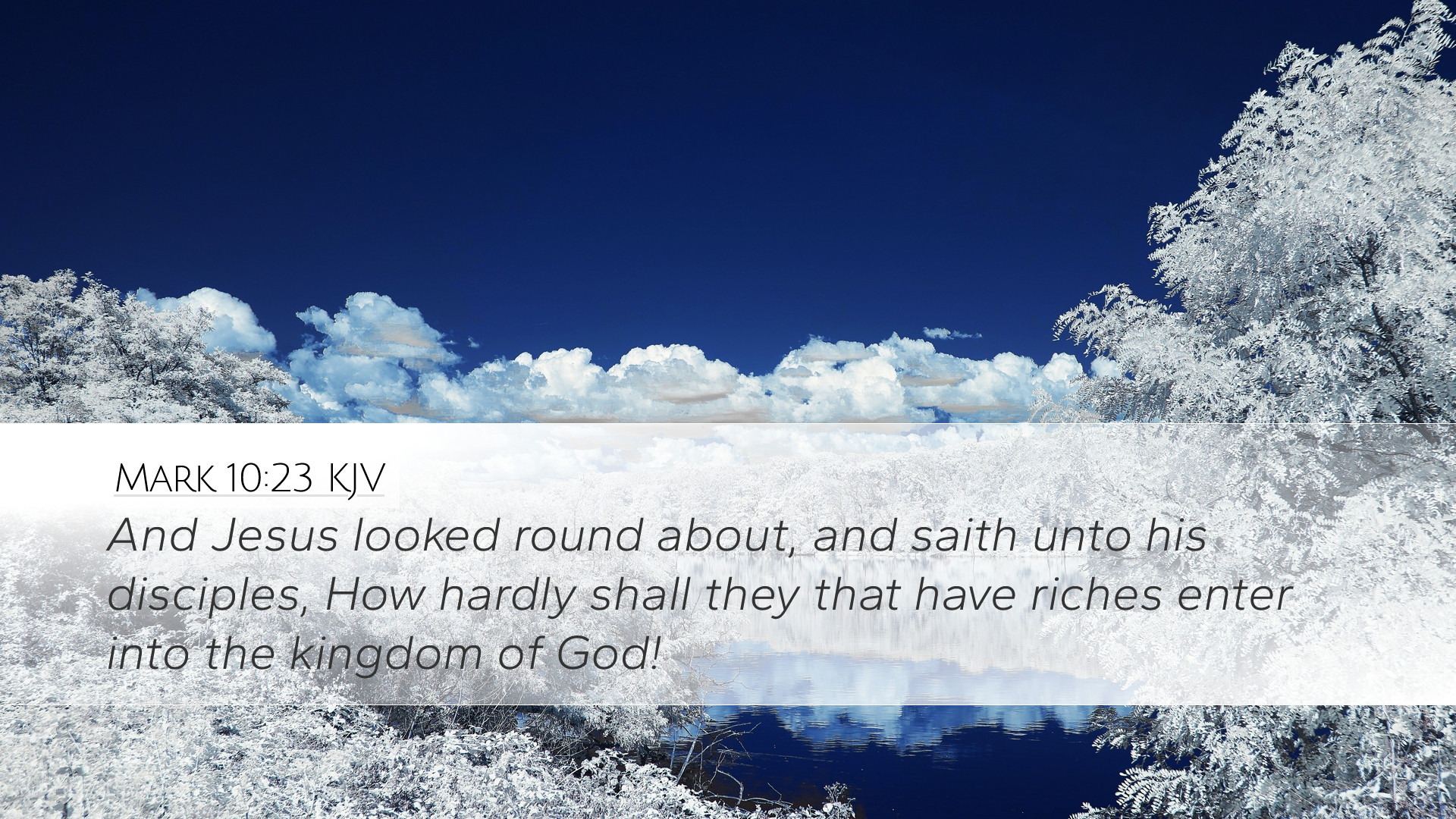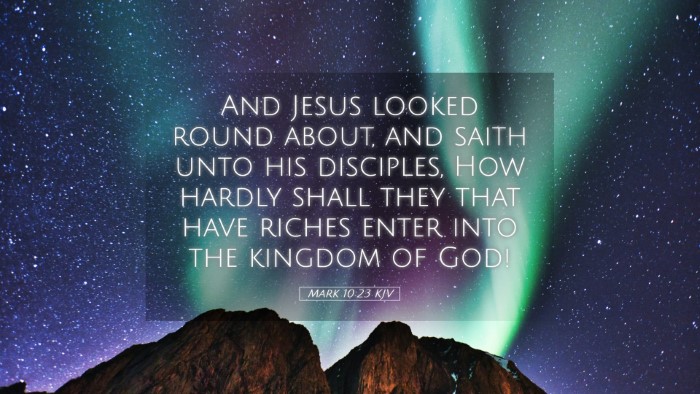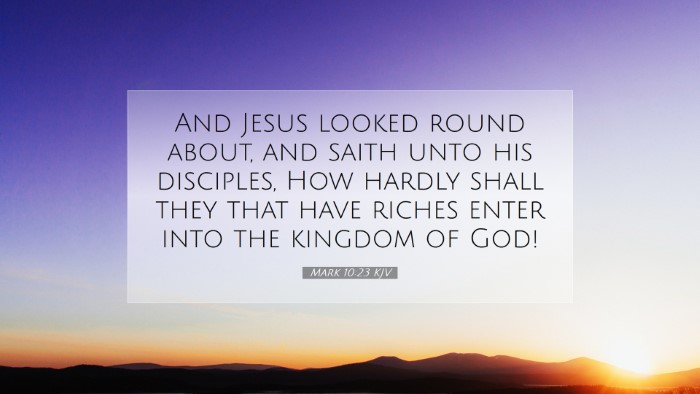Old Testament
Genesis Exodus Leviticus Numbers Deuteronomy Joshua Judges Ruth 1 Samuel 2 Samuel 1 Kings 2 Kings 1 Chronicles 2 Chronicles Ezra Nehemiah Esther Job Psalms Proverbs Ecclesiastes Song of Solomon Isaiah Jeremiah Lamentations Ezekiel Daniel Hosea Joel Amos Obadiah Jonah Micah Nahum Habakkuk Zephaniah Haggai Zechariah MalachiVerse
Mark 10:1 Mark 10:2 Mark 10:3 Mark 10:4 Mark 10:5 Mark 10:6 Mark 10:7 Mark 10:8 Mark 10:9 Mark 10:10 Mark 10:11 Mark 10:12 Mark 10:13 Mark 10:14 Mark 10:15 Mark 10:16 Mark 10:17 Mark 10:18 Mark 10:19 Mark 10:20 Mark 10:21 Mark 10:22 Mark 10:23 Mark 10:24 Mark 10:25 Mark 10:26 Mark 10:27 Mark 10:28 Mark 10:29 Mark 10:30 Mark 10:31 Mark 10:32 Mark 10:33 Mark 10:34 Mark 10:35 Mark 10:36 Mark 10:37 Mark 10:38 Mark 10:39 Mark 10:40 Mark 10:41 Mark 10:42 Mark 10:43 Mark 10:44 Mark 10:45 Mark 10:46 Mark 10:47 Mark 10:48 Mark 10:49 Mark 10:50 Mark 10:51 Mark 10:52

